José Júlio Alferes
Transaction Logic with (Complex) Events
May 15, 2014Abstract:This work deals with the problem of combining reactive features, such as the ability to respond to events and define complex events, with the execution of transactions over general Knowledge Bases (KBs). With this as goal, we build on Transaction Logic (TR), a logic precisely designed to model and execute transactions in KBs defined by arbitrary logic theories. In it, transactions are written in a logic-programming style, by combining primitive update operations over a general KB, with the usual logic programming connectives and some additional connectives e.g. to express sequence of actions. While TR is a natural choice to deal with transactions, it remains the question whether TR can be used to express complex events, but also to deal simultaneously with the detection of complex events and the execution of transactions. In this paper we show that the former is possible while the latter is not. For that, we start by illustrating how TR can express complex events, and in particular, how SNOOP event expressions can be translated in the logic. Afterwards, we show why TR fails to deal with the two issues together, and to solve the intended problem propose Transaction Logic with Events, its syntax, model theory and executional semantics. The achieved solution is a non-monotonic extension of TR, which guarantees that every complex event detected in a transaction is necessarily responded.
Query-driven Procedures for Hybrid MKNF Knowledge Bases
Dec 09, 2011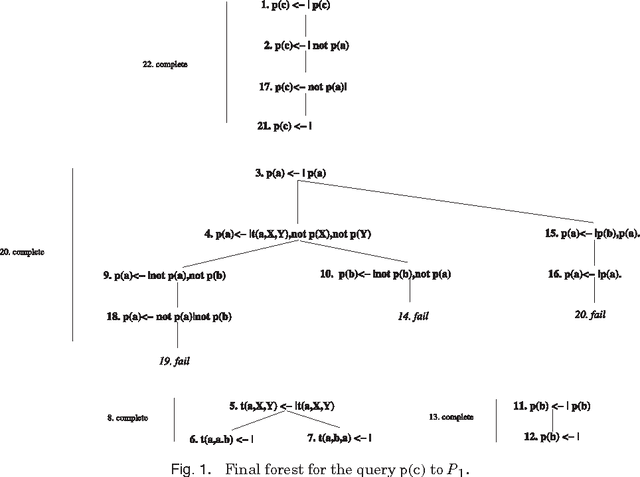
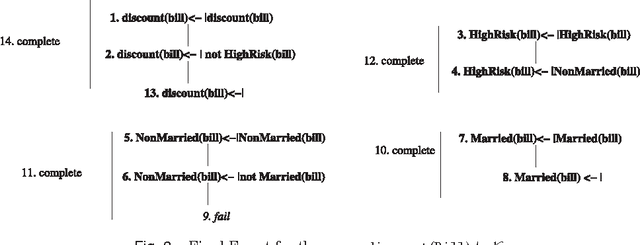
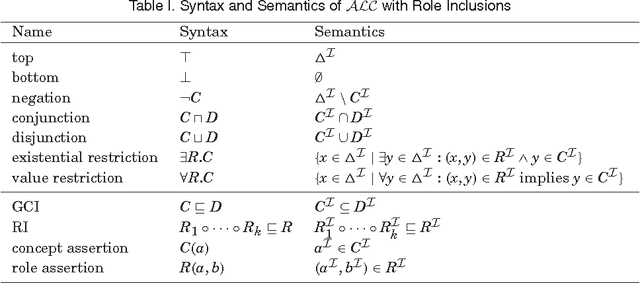
Abstract:Hybrid MKNF knowledge bases are one of the most prominent tightly integrated combinations of open-world ontology languages with closed-world (non-monotonic) rule paradigms. The definition of Hybrid MKNF is parametric on the description logic (DL) underlying the ontology language, in the sense that non-monotonic rules can extend any decidable DL language. Two related semantics have been defined for Hybrid MKNF: one that is based on the Stable Model Semantics for logic programs and one on the Well-Founded Semantics (WFS). Under WFS, the definition of Hybrid MKNF relies on a bottom-up computation that has polynomial data complexity whenever the DL language is tractable. Here we define a general query-driven procedure for Hybrid MKNF that is sound with respect to the stable model-based semantics, and sound and complete with respect to its WFS variant. This procedure is able to answer a slightly restricted form of conjunctive queries, and is based on tabled rule evaluation extended with an external oracle that captures reasoning within the ontology. Such an (abstract) oracle receives as input a query along with knowledge already derived, and replies with a (possibly empty) set of atoms, defined in the rules, whose truth would suffice to prove the initial query. With appropriate assumptions on the complexity of the abstract oracle, the general procedure maintains the data complexity of the WFS for Hybrid MKNF knowledge bases. To illustrate this approach, we provide a concrete oracle for EL+, a fragment of the light-weight DL EL++. Such an oracle has practical use, as EL++ is the language underlying OWL 2 EL, which is part of the W3C recommendations for the Semantic Web, and is tractable for reasoning tasks such as subsumption. We show that query-driven Hybrid MKNF preserves polynomial data complexity when using the EL+ oracle and WFS.
Abduction in Well-Founded Semantics and Generalized Stable Models
Dec 24, 2003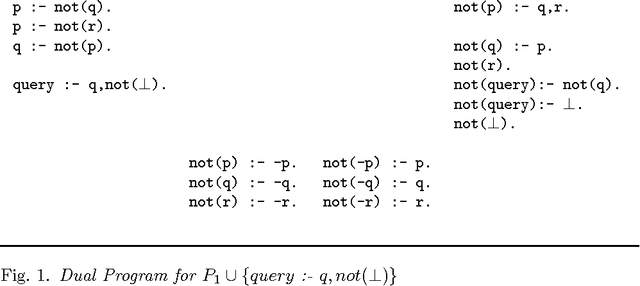

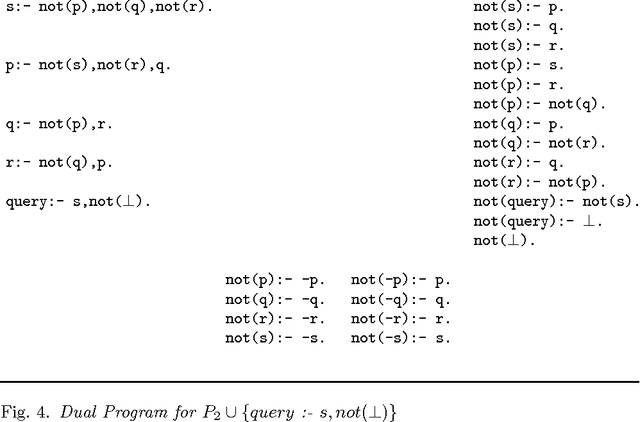
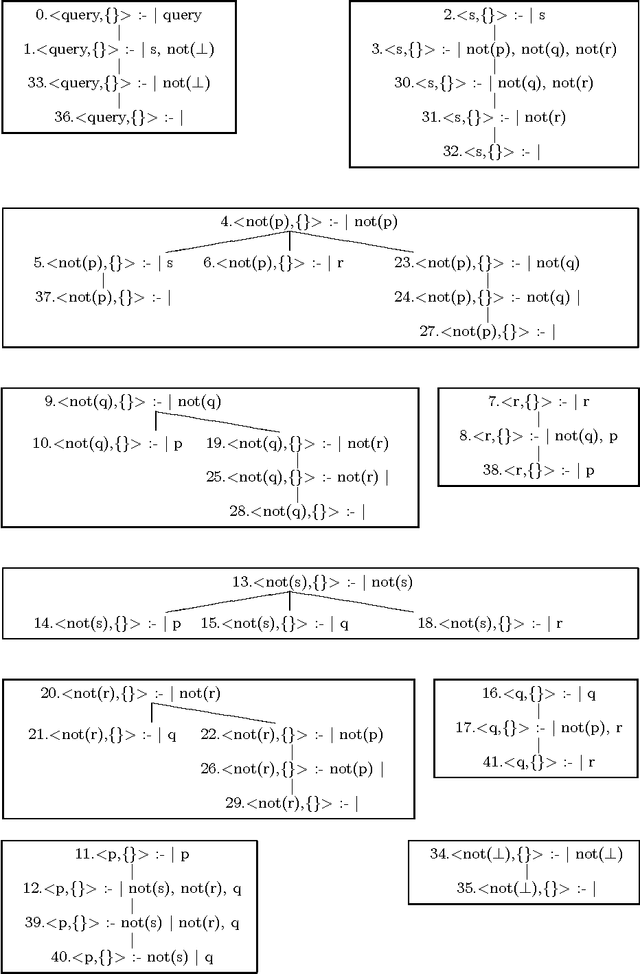
Abstract:Abductive logic programming offers a formalism to declaratively express and solve problems in areas such as diagnosis, planning, belief revision and hypothetical reasoning. Tabled logic programming offers a computational mechanism that provides a level of declarativity superior to that of Prolog, and which has supported successful applications in fields such as parsing, program analysis, and model checking. In this paper we show how to use tabled logic programming to evaluate queries to abductive frameworks with integrity constraints when these frameworks contain both default and explicit negation. The result is the ability to compute abduction over well-founded semantics with explicit negation and answer sets. Our approach consists of a transformation and an evaluation method. The transformation adjoins to each objective literal $O$ in a program, an objective literal $not(O)$ along with rules that ensure that $not(O)$ will be true if and only if $O$ is false. We call the resulting program a {\em dual} program. The evaluation method, \wfsmeth, then operates on the dual program. \wfsmeth{} is sound and complete for evaluating queries to abductive frameworks whose entailment method is based on either the well-founded semantics with explicit negation, or on answer sets. Further, \wfsmeth{} is asymptotically as efficient as any known method for either class of problems. In addition, when abduction is not desired, \wfsmeth{} operating on a dual program provides a novel tabling method for evaluating queries to ground extended programs whose complexity and termination properties are similar to those of the best tabling methods for the well-founded semantics. A publicly available meta-interpreter has been developed for \wfsmeth{} using the XSB system.
 Add to Chrome
Add to Chrome Add to Firefox
Add to Firefox Add to Edge
Add to Edge